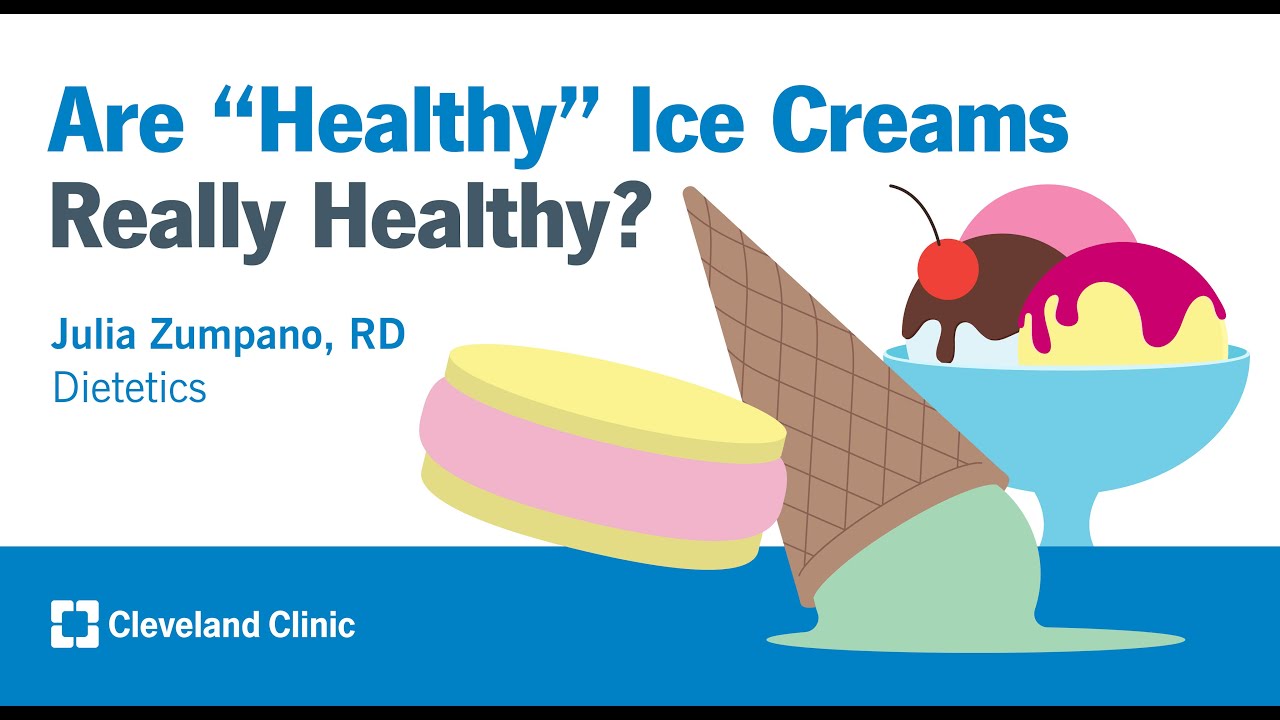Introduction

Ice cream has long been a beloved treat, enticing people of all ages with its creamy texture and endless flavor possibilities. Despite its popularity, there have been ongoing debates about its healthiness. This article aims to debunk common myths surrounding the healthiness of ice cream by examining its nutritional profile, vitamins and minerals content, and the relationship between ice cream consumption and weight gain. Additionally, it will explore the potential health benefits of ice cream, such as its positive effects on mood and mental well-being. Through this discussion, readers can gain a better understanding of the true impact of ice cream on their health.
Overview Of The Ice Cream Industry And Its Popularity
The ice cream industry has been thriving for decades, captivating consumers with its wide variety of flavors and textures. Ice cream enjoys immense popularity worldwide, with people of all ages indulging in this frozen treat. It has become a staple dessert at restaurants, cafes, and even in the comfort of one’s own home. Additionally, the ice cream industry often innovates by introducing new flavors and combinations, further increasing its appeal. Ice cream’s versatile and enjoyable nature has contributed to its sustained popularity and position as a beloved dessert choice for many.
Common Misconceptions About The Healthiness Of Ice Cream
There are several common misconceptions about the healthiness of ice cream that need to be debunked. One misconception is that all ice cream is loaded with unhealthy fats and calories. While some ice creams may be high in these, there are also options available that are lower in fat and calories, such as light or low-fat versions. Additionally, another misconception is that ice cream is devoid of any nutritional value. However, ice cream can still provide important nutrients like calcium and vitamin D, especially if made with dairy ingredients. It’s important to remember that moderation and choosing healthier options can make ice cream a part of a balanced diet.
Nutritional Profile Of Ice Cream

Ice cream has a distinct nutritional profile that includes varying amounts of calories, fats, sugars, and proteins. The calorie and fat content in ice cream can vary depending on the flavor and type, with richer options typically containing higher amounts. On the other hand, lighter versions or those made with alternative ingredients may have lower calorie and fat content. Ice cream is also a source of sugars and proteins, although the levels can vary. Overall, it’s important to be mindful of portion sizes and choose healthier options to enjoy ice cream as part of a balanced diet.
Calorie And Fat Content In Ice Cream
Ice cream can vary in its calorie and fat content depending on the flavor and type. Richer options tend to have higher amounts of calories and fat. For example, a scoop of chocolate ice cream may contain around 150 calories and 8 grams of fat, while a lighter option like vanilla bean may have around 120 calories and 5 grams of fat. It is important to be mindful of portion sizes and choose lighter, lower-fat options to enjoy ice cream as part of a balanced diet.
Sugar And Protein Content In Ice Cream
The sugar and protein content in ice cream can vary depending on the flavor and type. Traditional ice cream flavors tend to be higher in sugar, with an average serving containing around 15-20 grams of sugar. However, there are also sugar-free or reduced-sugar options available for those watching their sugar intake. When it comes to protein, ice cream is not a significant source. A typical serving may contain around 2-4 grams of protein. It’s important to be mindful of your overall sugar consumption and consider opting for lower sugar options when enjoying ice cream.
Vitamins And Minerals In Ice Cream

Ice cream is not a significant source of essential vitamins and minerals. While it may contain small amounts of certain nutrients, the overall nutritional value is minimal. The presence of vitamins and minerals in ice cream can vary depending on the flavor and additional ingredients. For example, ice cream made with dairy products may contain small amounts of calcium and vitamin D. However, it’s important to note that these quantities are not significant enough to meet your daily nutrient needs. Therefore, it’s best to rely on other nutrient-dense foods to ensure an adequate intake of vitamins and minerals.
Presence Of Essential Vitamins And Minerals In Ice Cream
Ice cream is not a significant source of essential vitamins and minerals. While it may contain small amounts of certain nutrients, the overall nutritional value is minimal. The presence of vitamins and minerals in ice cream can vary depending on the flavor and additional ingredients. For example, ice cream made with dairy products may contain small amounts of calcium and vitamin D. However, it’s important to note that these quantities are not significant enough to meet your daily nutrient needs. Therefore, it’s best to rely on other nutrient-dense foods to ensure an adequate intake of vitamins and minerals. [13]
Impact Of Different Flavors And Variations On Nutritional Value
Different flavors and variations of ice cream can have varying nutritional values. For example, fruit flavors such as strawberry or mango may provide some additional vitamins and fiber compared to regular vanilla or chocolate. However, it is important to note that these additional nutrients are still minimal compared to other whole fruits. On the other hand, some flavors may contain added ingredients such as nuts or candies, which can increase the calorie, fat, and sugar content. It is essential to read the nutrition labels and choose flavors that align with your dietary goals and preferences.
Ice Cream And Weight Gain

Exploring the relationship between ice cream consumption and weight gain, studies have shown that regularly consuming high amounts of ice cream can contribute to weight gain. This is mainly due to the high calorie, fat, and sugar content in ice cream. However, it’s important to note that weight gain is not solely attributed to ice cream, but to an overall imbalance in one’s diet and lifestyle. When incorporating ice cream into a balanced diet, portion control is key to prevent excessive calorie intake. It’s also important to consider the ingredients and choose lower calorie and sugar options. Moderation and mindful consumption are crucial for enjoying ice cream without significant weight gain.
Exploring The Relationship Between Ice Cream Consumption And Weight Gain
Studies have shown that regularly consuming high amounts of ice cream can contribute to weight gain. This is mainly due to the high calorie, fat, and sugar content in ice cream. However, it’s important to note that weight gain is not solely attributed to ice cream, but to an overall imbalance in one’s diet and lifestyle. When incorporating ice cream into a balanced diet, portion control is key to prevent excessive calorie intake. It’s also important to consider the ingredients and choose lower calorie and sugar options. Moderation and mindful consumption are crucial for enjoying ice cream without significant weight gain.
Factors To Consider When Incorporating Ice Cream Into A Balanced Diet
When incorporating ice cream into a balanced diet, there are a few factors to consider. These include portion control, frequency of consumption, and overall dietary choices. It’s important to enjoy ice cream in moderation and limit portion sizes to avoid excessive calorie intake. Additionally, considering the overall nutritional content of your diet is crucial. If you’re consuming ice cream, it’s essential to balance it with nutrient-dense foods like fruits, vegetables, lean proteins, and whole grains. By making thoughtful choices and maintaining a balanced diet, it is possible to enjoy ice cream as part of a healthy lifestyle.
Health Benefits Of Ice Cream

Ice cream, despite its reputation, can actually provide some health benefits when consumed in moderation. Firstly, ice cream has been found to have a positive effect on mood and mental well-being. The creamy texture and sweet taste can help boost serotonin levels, which is a neurotransmitter associated with feelings of happiness and relaxation. Additionally, certain ingredients found in ice cream, such as dairy and fruit, can provide essential nutrients like calcium, vitamins A and D, and antioxidants. These nutrients contribute to overall bone health, immune function, and eye health. It’s important to note that these health benefits are contingent on consuming ice cream as part of a balanced diet and not in excess.
Positive Effects Of Ice Cream On Mood And Mental Well-being
Ice cream can have a positive effect on mood and mental well-being. The creamy texture and sweet taste of ice cream can help boost serotonin levels, which is a neurotransmitter associated with feelings of happiness and relaxation. Indulging in a delicious scoop of ice cream can provide a moment of pleasure and joy, uplifting one’s mood. Whether enjoyed as a treat or as a form of comfort food, ice cream can provide a temporary escape from stress and bring about a sense of comfort and contentment. So, go ahead and enjoy a scoop of ice cream to lift your spirits and enhance your mental well-being!
Potential Benefits Of Certain Ingredients Like Dairy And Fruit In Ice Cream
Including dairy in ice cream can provide beneficial nutrients such as calcium, protein, and vitamin B12. Calcium is important for strong bones and teeth, while protein helps with muscle repair and growth. Vitamin B12 is essential for nerve function and the production of red blood cells. Additionally, incorporating fruits into ice cream can enhance its nutritional value. Fruits like berries and citrus fruits are rich in antioxidants and vitamins like vitamin C. These ingredients can contribute to overall health and well-being when consumed as part of a balanced diet.
Conclusion

In conclusion, while there are common misconceptions about the healthiness of ice cream, it can be enjoyed as part of a balanced diet. Ice cream provides essential nutrients such as calcium, protein, and vitamins. However, portion control and moderation are key to avoid excessive calorie intake and weight gain. By being mindful of serving sizes and choosing healthier options such as fruit-flavored or low-fat varieties, individuals can indulge in ice cream while still maintaining a healthy lifestyle. It is important to remember that enjoying ice cream should be a treat and not a daily indulgence.
Summary Of Key Points Discussed
In summary, this article debunked the common misconception that ice cream is unhealthy by highlighting its nutritional profile. While ice cream does contain calories and fat, it also provides essential nutrients like protein, vitamins, and minerals. The relationship between ice cream consumption and weight gain depends on portion control and overall dietary balance. Additionally, ice cream can have positive effects on mood and mental well-being. To enjoy ice cream in a healthy way, it is important to practice moderation and choose healthier options. Overall, ice cream can be enjoyed as part of a balanced diet when approached mindfully.
Tips For Enjoying Ice Cream In A Healthy And Balanced Way
To enjoy ice cream in a healthy and balanced way, here are a few tips:
- Practice portion control: Enjoy a small scoop or single serving of ice cream instead of indulging in large portions.
- Choose healthier options: Opt for low-fat or reduced-sugar ice creams, or try alternative options like frozen yogurt or sorbet.
- Pair with nutritious toppings: Add fresh fruits, nuts, or seeds to enhance the nutritional value of your ice cream.
- Balance your overall diet: Incorporate ice cream into a well-rounded and balanced diet that includes plenty of fruits, vegetables, whole grains, and lean proteins.
- Mindful eating: savor each bite of ice cream, taking the time to enjoy the flavors and textures.
Remember, moderation is key when it comes to enjoying ice cream while maintaining overall health and wellbeing.
Frequently Asked Questions about Ice Cream and its Health Effects
Q: Is ice cream unhealthy?
A: Like many indulgent treats, ice cream can be enjoyed in moderation as part of a balanced diet. While it may not be the healthiest food choice, occasional consumption of ice cream can be a delightful part of a well-rounded lifestyle.
Q: What makes ice cream unhealthy?
A: Ice cream can be high in calories, saturated fats, added sugars, and artificial additives. Overconsumption of these can contribute to weight gain, increased cholesterol levels, and potential health issues.
Q: Can ice cream be a part of a healthy diet?
A: Yes, in moderation. Opting for smaller portion sizes, lower-fat options, or even homemade ice cream with natural ingredients can make it a more balanced treat. Consider incorporating it into a diet that is otherwise rich in fruits, vegetables, lean proteins, and whole grains.
Q: Does ice cream contain any nutritional benefits?
A: Ice cream, especially those made from quality ingredients, can provide some nutrients like calcium, phosphorus, vitamins A and D, and protein. However, these benefits are often outweighed by the high calorie and sugar content, so it is important not to rely solely on ice cream for these nutrients.
Q: Are there any healthier alternatives to traditional ice cream?
A: Yes, there are several options available. Frozen yogurt, sorbet, and gelato tend to have fewer calories and less fat compared to traditional ice cream. Additionally, there are dairy-free and low-sugar versions available for those with specific dietary restrictions or preferences.
Q: Are all ice creams equally unhealthy?
A: No, the nutritional content of ice cream can vary depending on the brand, flavor, and ingredients used. Reading nutrition labels and opting for ice creams that are lower in saturated fats, added sugars, and artificial additives can help make a healthier choice.
Q: How can I enjoy ice cream while maintaining a healthy lifestyle?
A: Moderation and mindful consumption are key. Instead of indulging daily or in large quantities, treat yourself to a scoop or two occasionally. Pairing it with fresh fruit or enjoying it as a small indulgence in a balanced meal can also be helpful.
Q: Can ice cream be enjoyed by people with certain dietary restrictions?
A: Yes, there are ice cream options available that cater to various dietary restrictions, such as lactose-intolerance, veganism, or gluten-free diets. It’s important to check labels and choose ice creams that meet your specific needs.
Q: Should I completely avoid ice cream if I want to maintain a healthy lifestyle?
A: No, it’s not necessary to completely eliminate ice cream from your diet if you enjoy it. Moderation and mindful choices are key when it comes to maintaining a healthy and balanced lifestyle. Just make sure it is consumed in moderation and does not become the sole focus of your diet.

Soo Good Snack Bar is an upscale snack shop located at 1309 Hermosa Ave. in Hermosa Beach, CA. This family-owned business is the newest addition to the community of Hermosa, and our goal is to create a fun and inviting place where families can enjoy delicious snack foods that fit the beach lifestyle. Check us out today and help yourself to happiness.
